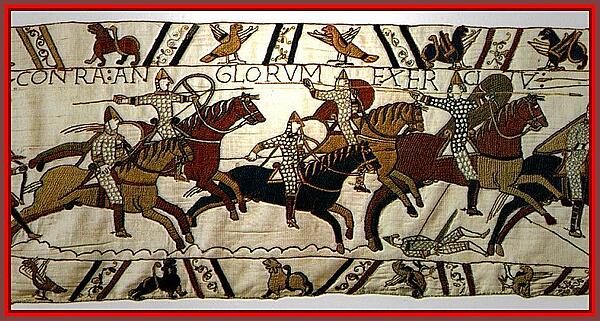The Legacy of the Norman Conquest
The Norman’s conquest across England under William the Conqueror led to the Battle of Hastings in 1066, an event in history that had an enormous impact on the country’s future.
Social hierarchy
Commonly referred to as the Norman yoke, one of the most significant changes made to England under William was the introduction of feudalism. This approach to managing society became referred to as such retrospectively in the 17th Century, which reflected the views of many that the Normans destroyed the Saxon golden age by allowing the nobility and gents to reign over the English land.
As part of feudalism, William also replaced English noblemen with trusted Norman advisors and provided them with areas of land that would allow them to collect taxes on his behalf. This system was documented in detail in the Domesday Book, for which the king surveyed the whole of England to determine how much tax each person should pay.
While the changes across society and the church may have been favourable to William, they prompted a significant and lasting shift on the medieval period, including a more centralised government.

Landscape
One of the marks left by the Normans that is particularly easy to identify are the Norman castle, which were constructed by William in most major towns to provide a base for his Norman noblemen.
Castles are commonly associated with medieval England but there were actually none in existence in the Norman conquest saw William take control of the country. However, by the time he died 21 years later there had been more 80 castles built, marking the start of an English trend or ruling from impressive stone buildings that would last for many hundreds of years.
The Normans also had a similar effect on churches and cathedrals, bringing from across the Channel new materials and architectural ideas that modernised church construction.
Language and culture
Naturally, the influx of Normans arriving in England both during and after the conquest had a huge impact on language and culture in England. Language began to drift from Old English to Latin, not to return to (Middle) English until the 14th Century when the languages began to merge.
In terms of politics, there was a shift away from the systems of the Viking conquerors and Scandinavia and towards the systems of Europe - specifically France. This was represented elsewhere in culture, too, such as with the replacement of mead halls with wine drinking.
A lasting mark was made by the Normans on English names, with French names such as William and Henry still popular today. These replaced the more traditionally Anglo Saxon names such as Godwin and Harold, which went out of fashion following the events of 1066.
See also:
MLA Citation/Reference
"The Legacy of the Norman Conquest". HistoryLearning.com. 2026. Web.
